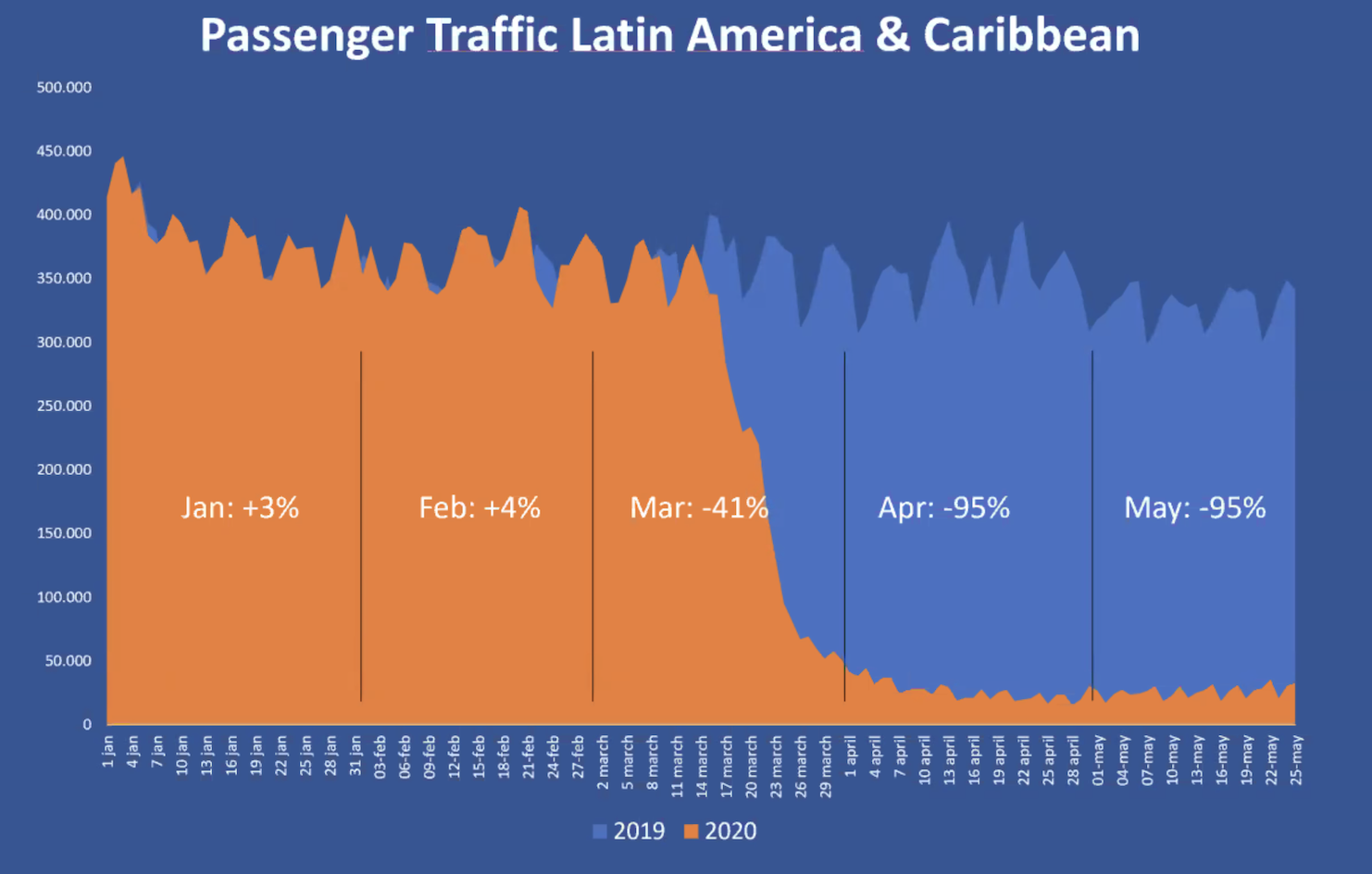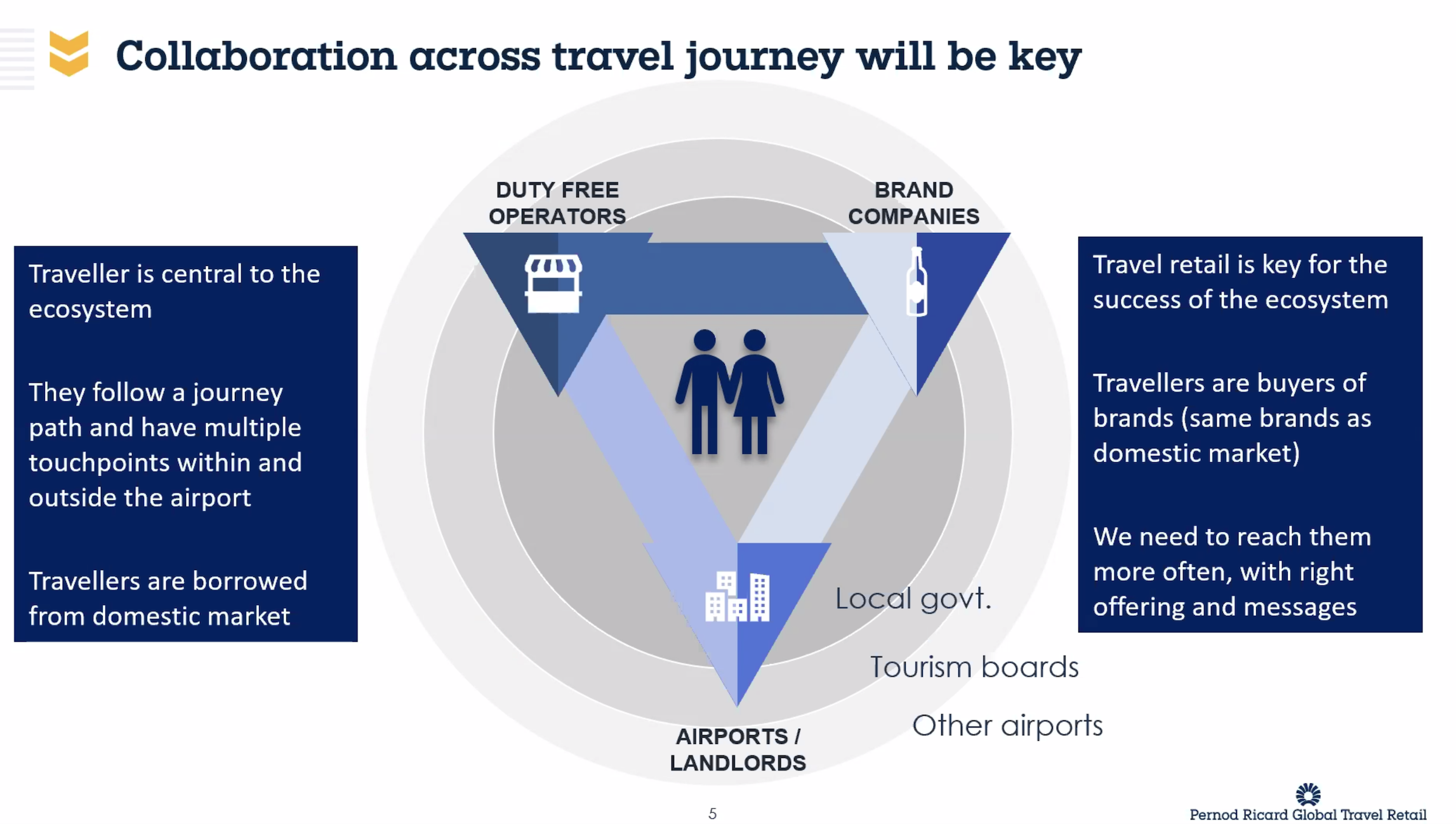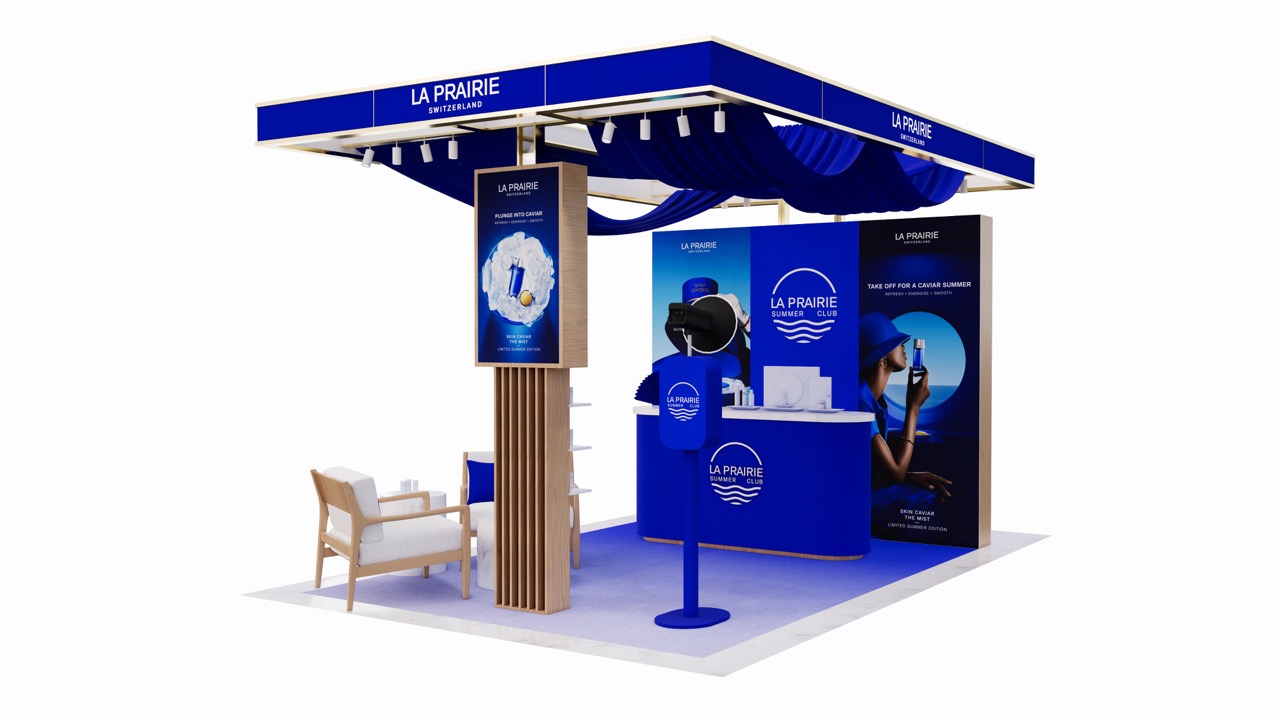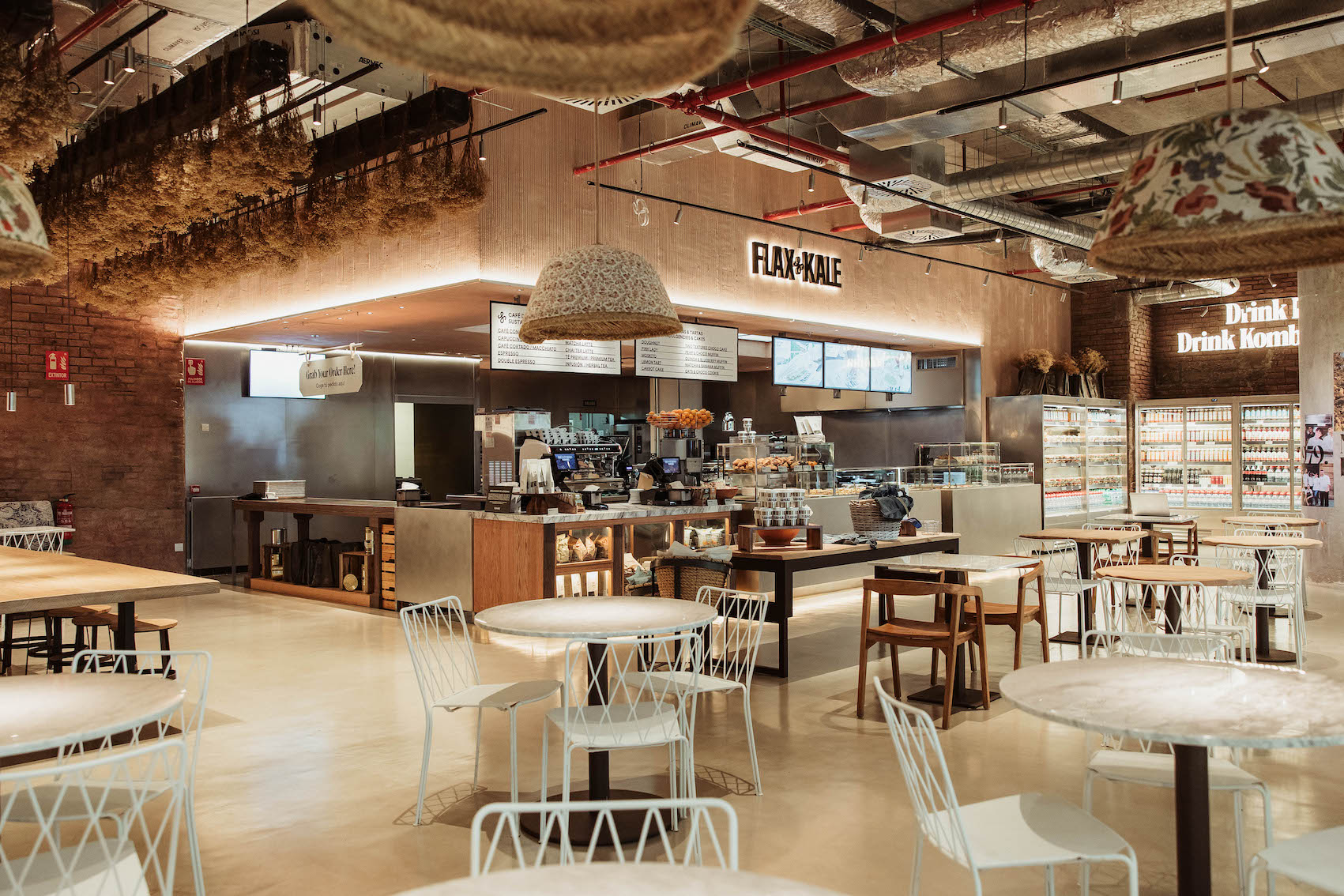LATIN AMERICA. Trinity collaboration will be urgently needed as the travel retail industry seeks to overcome the impact of the COVID-19 pandemic in the months and years ahead, according to senior figures in the Latin American business.
In a webinar organised by Asociación Sudamericana de Tiendas Libres (ASUTIL) and moderated by its Secretary-General José Luis Donagaray, speakers from the airport, retailer and brand communities said partnership would have to take on new meaning in the future.

Airports Council International Latin American & Caribbean (ACI-LAC) Director General Rafael Echevarne set the scene with ACI-LAC’s stark prediction for air travel in the region in 2020 and beyond.
Travel in the region was down -95% year-on-year in April and May, with a similar drop anticipated in June, Echevarne said. ACI-LAC is expecting traffic for the year to fall by -50% compared to 2019, only returning to the levels of last year in 2023.

Echevarne added that the forecast was based on several factors that are currently hard to predict. These include the easing of travel restrictions and their timing, the financial situation of the region’s airlines, plus wider economic development.
“The other side is what incoming passenger restrictions we will see. If we enforce quarantines, tourism will not materialise,” he continued.
Dufry General Manager of South America Enrique Urioste commented: “We are confronted with something that is new to all of us. Some of us have experienced economic, political or scientific crises, but never the three together on a global scale.”
Urioste said Dufry has been working with other stakeholders to ensure that safety protocols are consistent across the airport and that the whole passenger journey is harmonised.
“We know for sure that people are going to be in a state of alert when flying again. This means people that used to like testing products and talking to staff are going to be less sure. This state of mental stress and wellbeing is a concern that all parties need to address because it is going to be there,” he said.
“We have been working very closely with airports. From the moment the passenger arrives at the airport, they need to feel safe.
“One thing we are working on is omnichannel within the airport. Our industry is highly regulated, but customers can reserve products and we can start communicating with our passengers online. That is one of the milestones that we have defined.
“We can take advantage of the longer check-in process by having our team with digital tools starting the retail experience at this stage. We can also do that after they have been through security. The idea is to identify all of the touchpoints where we can interact with customers.”

Urioste added that he felt the pandemic was leading different sides of the Trinity to communicate more than at any time previously.
“We have as an industry the unique opportunity to address things that we have all been talking about but have never done because business gets in the way,” he continued.
“I have been attending The Moodie Davitt Report’s Trinity Forum for about 15 years and they have been advocating redefined concession contracts and relationships across the industry. This is the unique opportunity that we have been given; it is a chance to take what is good from a bad situation.”
Urioste concluded: “Our customer numbers are going to be much lower. We need to be aggressive in an intelligent way with promotions, offers, product mix and the uniqueness of the channel. We are still competing with the Amazons of this world and need to keep bringing what made our industry what it is.”

Pernod Ricard Global Travel Retail Strategy & Insights Director Anuj Roy echoed the call for collaboration. “We feel a silver lining in this is that it can bring the industry much more together. There is a strong need for collaboration across the traveller journey; travellers are central to the ecosystem and they have certain touchpoints within and outside the airport,” he said.
Roy added that Pernod Ricard tracks trends and posts on social media and that “a tipping point has been reached; people are now looking forward to travelling”.
L’Oréal Travel Retail Americas Strategic Business Development Director Gabriela Rodríguez said the recovery would be driven not just by the traditional Trinity of landlord, retailer and brand, but through a ‘quaternity’ that include trade bodies.
“We need to work together and focus on the consumer because we are receiving a consumer that has been going through a rollercoaster and we must work as a quaternity because the brand, retailer, airport authority and associations are all a part of this,” she added.

The pandemic has forced Lindt & Sprüngli to reconsider its approach, the chocolatier’s Sales & Marketing Manager for Americas Duty Free Markus Suter said.
“What we will do is focus more on travel retail exclusives and our core products; we will not launch many new items in the next one or two years,” he told attendees.
A second ASUTIL webinar for the association’s members will be taking place on Thursday (25 June). To register, email asutil@asutil.org.
Concluding the session, ASUTIL’s Donagaray said: “The idea is to have these meetings because we need to share information between all of us through this recovery.”













